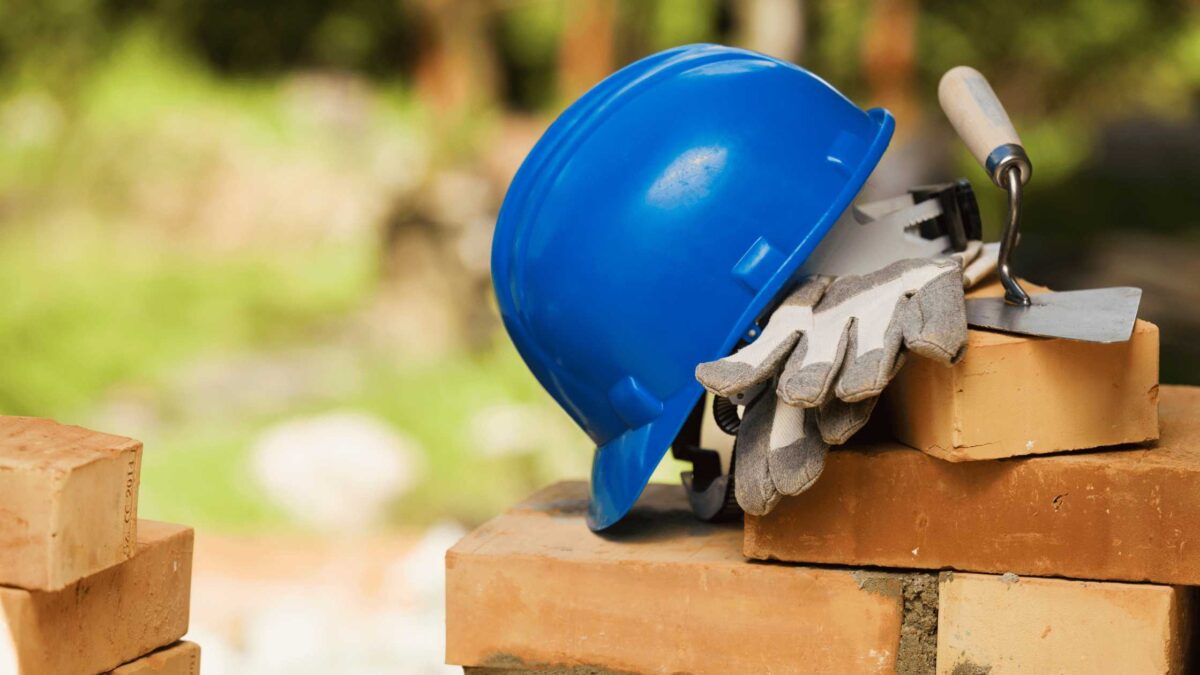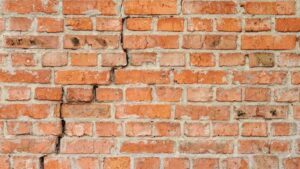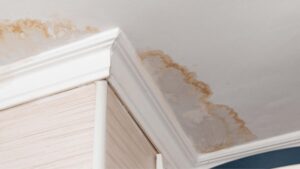
The technique of building structures using concrete, bricks, stones and mortar is a tribute to human creativity. The sturdy exteriors protect our houses from the elements and give them a touch of classic elegance. However, even the strongest construction materials are susceptible to cyclical advancement through time as well as environmental stresses. The early detection of issues is crucial to prevent small problems from turning into costly repairs. How do you know if your home needs masonry repair? Below are 5 warning signs to be aware of:
1. Deteriorated or Missing Mortar
Mortar glue, which holds the masonry together, plays an essential role in the strength of your masonry and weather resistance. As time passes, severe weather conditions or wear and tear or poor quality mortar could result in cracks, crumbling or even missing pieces.
- Look for: Crumbling or cracked mortar between bricks, stones, or concrete blocks. The gaps are wider than usual (typically more than one-half inch). The sound of hollowing occurs when you lightly tap your mortar joint.
- Why it matters: Deteriorated mortar permits water to soak into the masonry and lead to more damage due to freezing and thawing cycles, pressure in the water and even growth of mold. Bricks that are loose can be smashed and compromise the wall’s structural integrity.
- Masonry repair solution: Tuckpointing, a method of removing mortar that has been damaged to replace it new mortar is the most commonly used method. In extreme cases, complete restoration of the entire surface might be required.
2. Cracked Bricks, Stones, or Concrete
Although hairline cracks are common and don’t be a threat immediately, more extensive or wider cracks could be reason to be concerned.
- Look for: Cracks that run either diagonally or vertically across the surface of the masonry. Cracks that are larger than a hairline (approximately 1/8 inch). Cracks in the stair-step in which cracks run parallel to the joints of mortar.
- Why it matters: Cracks can allow water to enter which can cause the issues discussed above. In extreme instances, huge cracks can weaken the wall’s structural integrity.
- Masonry repair solution: The repair methods vary based on the extent and severity of crack. Cracks that are hairline can be closed using a sealant. larger cracks could require injections of epoxy or other materials for patching. In the case of severe damage brick or block replacement could be necessary.

3. Bowed or Leaning Walls
Walls that extend outwards or lean toward the back are a major signal of danger and warrant immediate focus. It can be due to different factors, which include:
- Defective foundation: If the foundation supporting the walls of your masonry is shifting in a way that is uneven, it could cause your walls to bow or to lean.
- Moisture issues: A lot of moisture accumulation behind the masonry could result in the expansion of soil which can push the walls to the outside. However, drying and shrinking soil could pull walls backwards.
- Poor construction practices: Failure to adequately account for structural forces or together inferior materials could result in wall instability.
- Look for: Noticeable bulging or leaning of the walls. Doors or windows that are sticking or becoming difficult to open and close. Cracks in the plaster or drywall within the home that cause cracks on wall surfaces outside.
- Why it matters: Bowing or leaning walls are a sign of structural issues which can get worse over time. If not addressed, it could result in wall collapse, which could put at risk the security of your home.
- Masonry repair solution: This is a difficult issue that requires competent assessment. Based on the reason, solutions could include foundation repair and soil stabilization, underpinning or reinforcements for the structure itself.
4. Water Damage
The arch enemy of water is the masonry. The constant exposure to moisture could result in a range of problems.
- Efflorescence: A white powdery substance that appears on the surface of the masonry which indicates water movement inside the wall.
- Spalling: The flaking or chipping of the stone, bricks or concrete surface as a result of freezing or expansion caused by moisture. within the concrete.
- Rust stains: Brownish-red stains that appear on the masonry, usually in the vicinity of metal parts such as flashings or lintels, which indicate that water is leaking from these parts.
- Look for: Visible evidence of water damage, such as those mentioned above. Water damage around the foundation of the basement. The growth of mold on the interior walls.
- Why it matters: The impact of water damage is that it does not only impact the appearance of your house, but it can also affect the strength of the masonry and can create a source of moisture for mold.
- Masonry repair solution: Identifying the root of the water loss is essential. This could mean repairing leaky gutters, downspouts or flashing. A damaged masonry structure may require cleaning, repointing or even replacement based on the extent of damage.

5. Signs of Pest Infestation
Although less prevalent than other signs, finding evidence of pests inside your masonry could suggest an issue. Certain creatures, such as rodents and insects, are able to get into cracks and damage mortar joints, opening access points for water, increasing the risk of structural damage.
- Look for: Small holes or gaps in mortar joints. Evidence of nesting materials such as leaves, twigs or droppings in the brickwork. You can see live insects or rodents on the walls’ exterior.
- Why it matters: Pests are not just a threat to your home’s masonry, but also pose health and safety risks.
- Masonry repair solution: When combined with measures to control pests, seal up cracks, and repair damaged mortar joints can benefit to prevent the occurrence of future pest infestations.
Taking Action
If you observe some of the warning signs listed above, don’t hesitate to seek out a reliable brick repair company. A well-qualified person can determine the extent of the damage, and recommend the best way to proceed. The early intervention will help you save cash in the end and stop minor problems from becoming more serious issues.
Here are a few extra ways to maintain the masonry in your home:
- Check your masonry regularly for signs of wear and tear.
- Clean your gutters and downspouts and be free of obstructions to stop water from getting into your foundation.
- Remove vegetation from your home to prevent water from building up on the walls.
- Use a water repellent for your masonry once every couple of years and follow the manufacturer’s recommendations.





